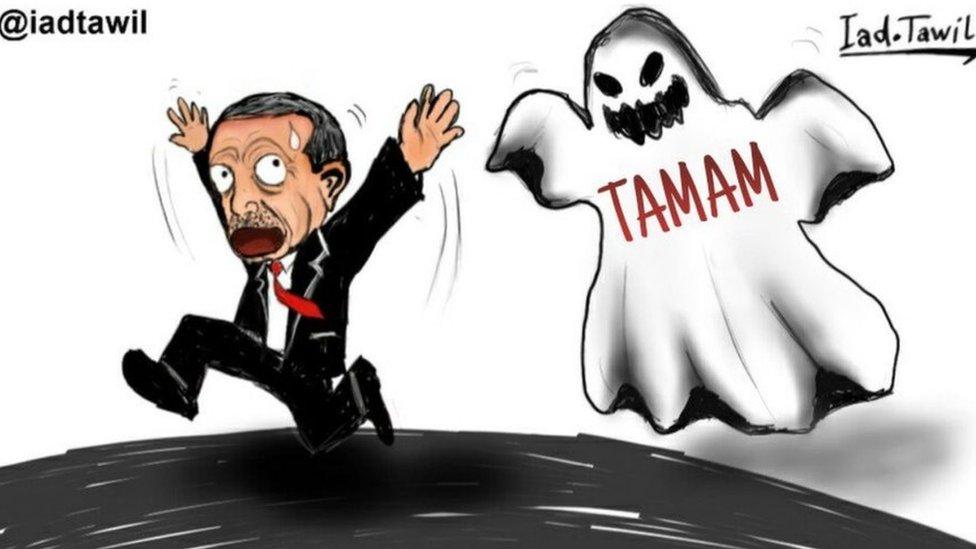Turkey’s Erdogan faces surprise test in tight vote
- Published
Does it matter who's in charge of Turkey?
As the last of the spring rain fell over the Bosphorus, the political party flags in the Istanbul district of Besiktas looked distinctly sodden and flyers lay crumpled on the pavement.
But the deluge did not dampen the spirits of opposition campaigners sensing a renewed vitality in 24 June elections.
"We're supposed to close at 8pm," said one as he huddled beneath a tent. "But there's so much interest now that we often stay until 11pm."
When early presidential and parliamentary polls were called in April, they were widely seen as in the bag for President Recep Tayyip Erdogan.
He had caught the opposition off guard, the centre-left CHP scrambling to find a candidate and a nationalist challenger on the right perhaps unable to take part as she lacked enough MPs.
But six weeks is a long time in Turkish politics.
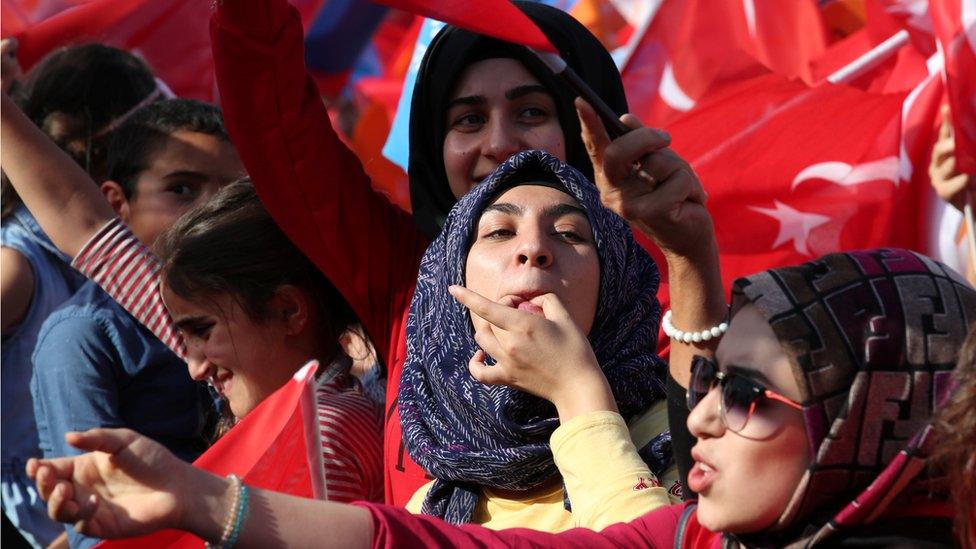
Recep Tayyip Erdogan is favourite to secure a second presidential mandate and victory would give him greater executive powers
Who is challenging Erdogan?
The CHP has since named a fiery and increasingly popular presidential candidate; it helped the new nationalist Iyi (Good) Party to run by "lending" the party 15 of its own MPs; the opposition formed a broad alliance for the first time to ensure smaller parties cross the high parliamentary threshold; and the Turkish lira plunged to new depths against the dollar, at one point down 20% compared to the start of the year, shaking confidence further in Erdoganomics.
And yet the president remains a formidable political animal.
He has won every electoral test over 15 years in power; around 90% of Turkish media is pro-government; his conservative support base adores him; and opinion polls still put him comfortably ahead of his rivals - just perhaps not enough for an outright win in the presidential election and possibly not enough to retain his party's parliamentary majority.
Rise of the 'she-wolf'
One way of ignoring the Bosphorus rain for retired teacher Gulseren Ulucay was to attach a lapel-pin showing a bright sun: the symbol of the new Iyi party.
It was formed by Meral Aksener, who was a hard line interior minister during the height of the violence with the PKK Kurdish militants in 1997, but who has reinvented herself as a pro-democracy nationalist, nicknamed the "she-wolf".
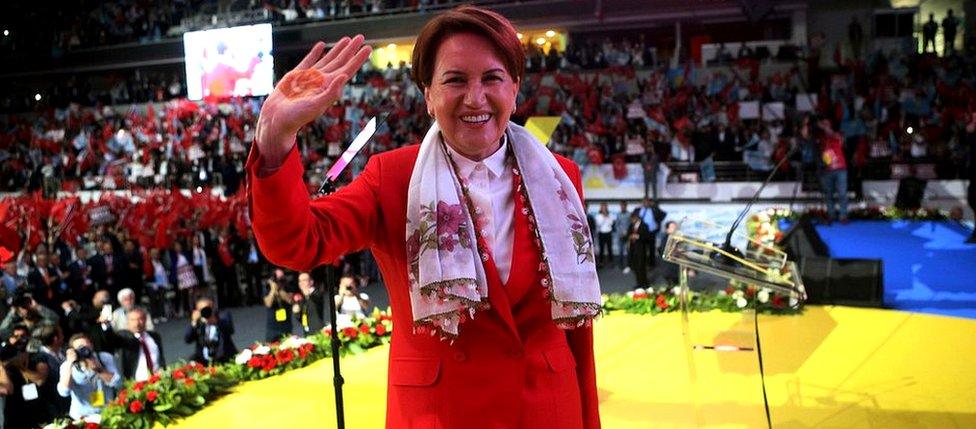
She's hit the campaign trail promising to sell off Turkey's heavily pro-government state broadcaster and give the proceeds to the public.
"She's more of a man than many men," Ms Ulucay laughed. "She's neither corrupt nor a thief. She's everything the government isn't."
Momentum builds for secular candidate
A few weeks ago it was assumed that if a second round in the presidential election was needed, Ms Aksener would be the candidate to fight President Erdogan.
But she has since been somewhat eclipsed by the CHP candidate, Muharrem Ince.
A long-standing MP and a former physics teacher, he has seized the momentum, equalling the firebrand rhetoric of Mr Erdogan.
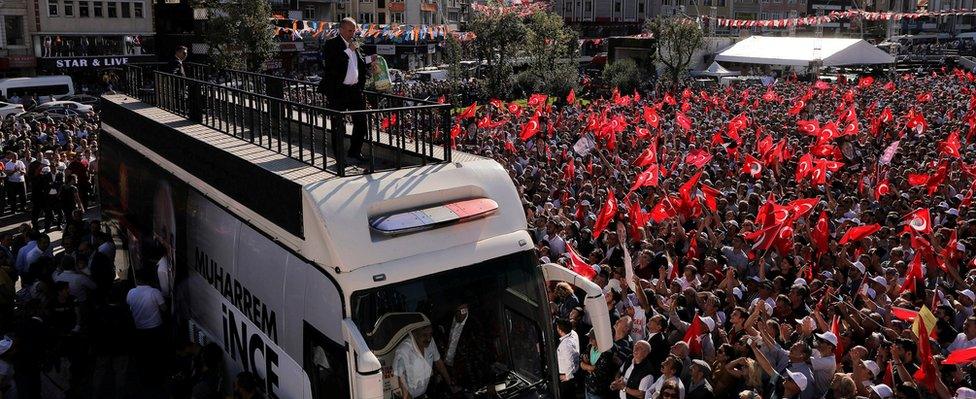
He has promised to turn the lavish presidential palace into an institute of learning, to reduce compulsory military service and remove the often-used charge of "insulting the president" from Turkey's legal code.
"You will tweet freely if I am elected," he vowed.
The CHP traditionally has had problems reaching beyond its secular base. But Mr Ince's family is pious - his mother and sister wear a headscarf - and his rhetoric is inclusive.
"He can talk to young people, since he was a teacher," says Dogan Kiroglu, 23, manning the CHP stand in Besiktas. "Erdogan has used his oratory for 16 years - he's at the end of it. Ince is at the start."

How the vote works
56 million domestic voters and 3 million expatriates choose executive president and 600-seat parliament
Expats started voting on 7 June
If no-one wins over 50% of presidential vote, top two candidates contest a second round on 8 July
Opinion polls suggest President Erdogan will fall short of a first-round victory
Read more on Turkey and the election campaign here:


The Kurdish factor
Also standing for the presidency is Selahattin Demirtas of the pro-Kurdish HDP party, imprisoned in November 2016 in the clampdown following the failed coup.
In a move worthy of Kafka, he's running from behind bars.
Loved by many Kurds and leftist Turks for his charisma, he is seen by Turkish nationalists as inexorably linked to the PKK Kurdish militants.
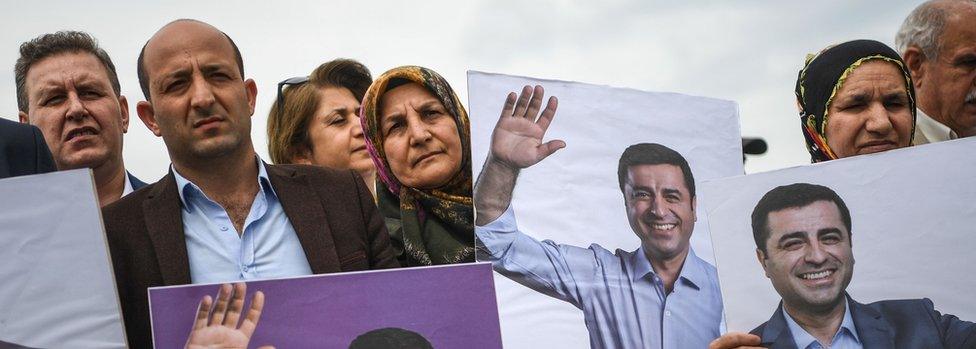
The jailed pro-Kurdish party leader won almost 10% of the vote in 2014 elections
If his party crosses Turkey's 10% threshold for entry into parliament - the highest in the world - polls suggest the ruling AKP, in a coalition with the far right, might lose its majority.
What if Erdogan wins?
Even if Mr Erdogan retains the presidency, wielding immense new powers narrowly approved in a contested referendum last year, losing the parliamentary majority could hobble him.
"In a cohabitation, he might issue decrees but parliament could annul them," says Prof Soli Ozel of Kadir Has University.
"Parliament will be somewhat stripped of its powers under the new system - but it still has power."
The executive presidency would make Mr Erdogan head of the executive as well as head of state, scrapping the post of prime minister.
He would be able to enact some laws by decree, choose ministers and most senior judges and dissolve parliament, though it could vote to investigate or impeach the president.
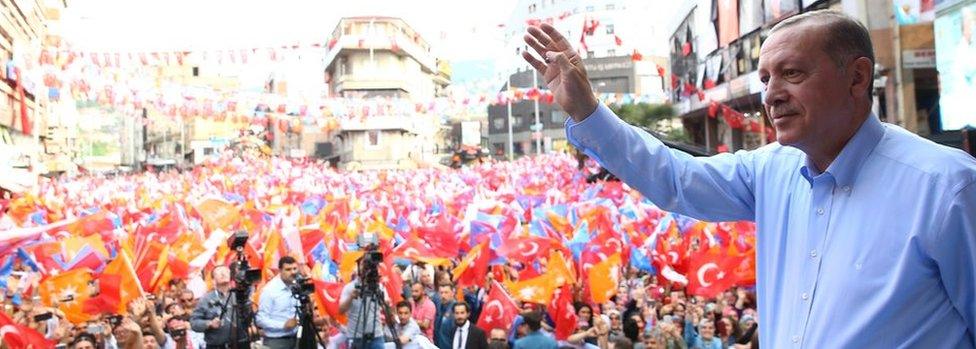
After the election, changes narrowly backed in a 2017 referendum will come into effect, creating a powerful executive presidency
Both Mr Ince and Ms Aksener say the reform concentrates too much power in the hands of one person and that they would roll it back if they were elected.
The concern for many in this election is of irregularities: intimidation in the south-east, where Kurdish votes are critical, and changes to electoral laws that make fraud more likely.
There will be intense oversight - but with big questions over last year's constitutional referendum and a continuing state of emergency, fears of rigging are rife.
The odds are still on a victory for Mr Erdogan.
Cemal Civan, taking an Erdogan leaflet, reveres his president. "I remember the bad times here when we didn't have water. But he gave us the metro, hospitals and schools. Foreign powers are causing the economic problems - it's an international conspiracy."
If enough of his supporters hold that line, the president could ride out an economic storm that has seen inflation rise above 12% and Turkey's financial ratings plummet.
"Within six months, the inflationary impact will be felt," says Prof Ozel. "But unless the opposition can convince people that they'd manage the economy better, the electorate might reluctantly stick with him. It's a question of how loyal they remain."
Party loyalty, electoral credibility, the Erdogan era: all are on the line in Turkey's toughest political fight in many years.
- Published9 May 2018
